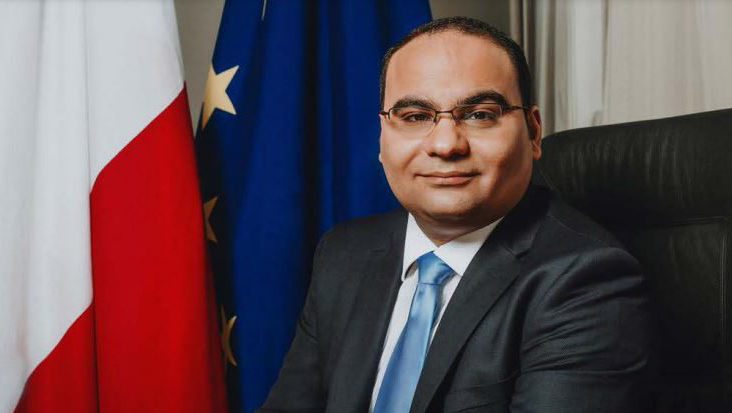In a long-awaited reaction to Malta passing its Moneyval assessment, Finance Minister Clyde Caruana stressed that Malta has committed itself to the institutional, regulatory and legislative reforms brought on ahead of the assessment, adding that “this commitment will be respected”.
Malta has been assessed to be fully or largely compliant with all 40 of the recommendation put forward by Moneyval to improve its defences against money laundering and terrorism financing.
The report, released on Thursday by the Council of Europe’s anti-money laundering board, noted that Malta succeeded to meet general expectations after first being found deficient in a number of areas in 2019.
In 12 of the 40 recommendations, Malta was found to be fully compliant, while it was found to be “largely compliant” in the other 28 recommendations.
Malta therefore no longer has any “non-compliant” or “partially compliant” ratings.
Late last month, local media reported that Moneyval had voted to approve its final report on Malta during a plenary session held in Strasbourg.
During Thursday evening’s press conference, Minister Caruana said that he waited to comment on the outcome because “seriousness dictates that comments are made once the official report is published”.
Now that this has transpired, he said he is free to comment.
He said that Malta worked tirelessly to attain the European Commission’s trust, along with the rest of the EU member states and beyond.
“All the work we did we intend to preserve. I am the first to give my word as Minister of Finance that Malta, and all the reform it achieved, will continue to be strengthened and worked on in the coming weeks, months and years.
“This country has committed itself, and this commitment will be respected”.
He explained how Moneyval’s initial review identified nine broad technical areas of deficiency, accompanied by 40 recommendations.
Minister Caruana remarked that after it was made official that Malta’s reforms met expectations, this means the countries institutions, laws, regulations and frameworks are now in line with fellow EU member states and the countries that make up the Financial Action Task Force (FATF), a global anti-money laundering organisation which acts as a parent organisation to the Council of Europe’s Moneyval.
Addition to the grey list would have made Malta’s position as a financial services and igaming hub more difficult to maintain, as it would heighten transactional risks to the global banking community and necessitate stricter oversight when conducting business with Maltese firms.
The Minister stressed that this chapter in Malta’s story does not end here, and, now that Malta’s “written exam” has been passed, the FATF will provide a final decision on whether to grey-list the jurisdiction, expected to be taken next month.
“Once this decision is taken, we can finally say this story is truly over. I look forward to the members of the FATF to review the comprehensive work carried out by Malta positively.”
Dr Caruana stressed that Malta’s was greatly assisted by the European Commission, adding that the institution showed full faith in the country.
European Parliament adopts regulation making it easier for companies to be paid on time
The maximum credit term under the new Late Payment Regulation is to up to 120 days, for some sectors
French ATC strike forces Ryanair to cancel over 300 flights, affecting 50,000 passengers
The low-cost carrier is demanding the EU carries out reforms to ensure travel continues undisrupted
Valletta ranks 8th most expensive European capital city to live in – study
While London is the most expensive, Bucharest is the most affordable






